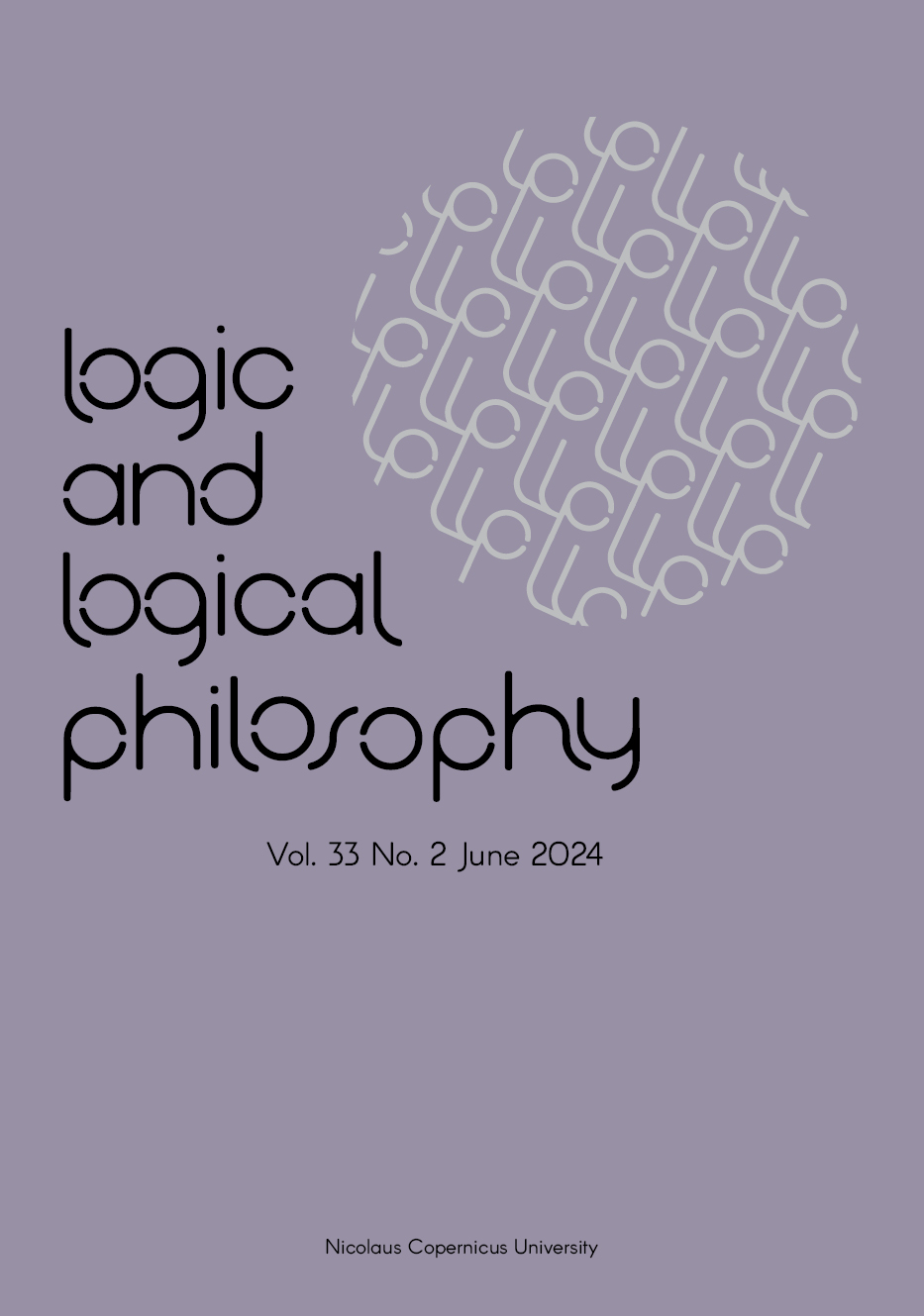The Principle of Explosion in the Stoic Logic
DOI:
https://doi.org/10.12775/LLP.2024.012Słowa kluczowe
ancient, Stoic logic, syllogistic, explosiveAbstrakt
I argue that the Stoic logic is explosive. The claim applies to the Stoics' syllogistic in the strictest sense, because there is a provable syllogism which qualifies as a principle of explosion. It applies also to the general consequence operation, in the sense that every sentence is derivable from any pair containing both a sentence and the negation of the sentence. Finally, it applies to the connective of implication (conditional), in the sense that any conditional is derivable, providing its antecedent is a conjunction of a sentence and the negation of the sentence. All three claims allow weakening, i.e., additions of extra premises to an inference or extra conjuncts to the antecedent of an implication, respectively. Consequently, no concept of relevance, let alone paraconsistency or connexivity is applicable to the Stoic logic; in particular, the Stoics' connective of implication is either material (Boolean) or formal (strict).
Bibliografia
Alexander of Aphrodisias, 1883. Commentarium in Aristotelis Analyticorum Priorum Librum I. Ed. Maximilianus Wallies. Berolini: Typis et Impensis Georgii Reimeri.
Apuleius, Platonicus Madaurensis, Apuleius Platonicus, 1991. De Philosophia Libri. Ed. Claudio Moreschini. Berlin, Boston: De Gruyter.
Bobzien, Susanne, 1996. Stoic Syllogistic. Oxford Studies in Ancient Philosophy 14: 133–192. DOI: http://dx.doi.org/10.1093/oso/9780198236702.003.0004
Diogenes Laertius, 1925. Lives of Eminent Philosophers, vol. 1–2. Trans. R. D. Hicks. Cambridge, MA: Harvard University Press.
Łukasiewicz, Jan, 1927. O logice stoików. Przegląd Filozoficzny 30 (4): 278–279.
Mates, Benson, 1953. Stoic Logic. Berkeley, Los Angeles: University of California Press. DOI: http://dx.doi.org/10.1525/9780520349070
Nasieniewski, Marek, 1998. Is Stoic logic classical? Logic and Logical Philosophy 6: 55–61. DOI: http://dx.doi.org/10.12775/LLP.1998.003
Priest, Graham, 1998. What is so Bad about Contradictions? The Journal of Philosophy 95 (8): 410–426. DOI: http://dx.doi.org/10.2307/2564636
Sextus Empiricus, 1933). Outlines of Pyrrhonism, trans. R. G. Bury. Cambridge, MA: Harvard University Press.
Sextus Empiricus, 1935. Against Logicians, trans. R. G. Bury. Cambridge, MA: Harvard University Press.
Simplicius, 1894. Simplicii in Aristotelis De caelo commentaria. Ed. J. L. Heiberg. Berlin: Typis et impensis Georgii Reimeri.
Sylvan, Richard, 2000. A Preliminary Western History of Sociative Logics. In D. Hyde and G. Priest (eds.), Sociative Logics and Their Applications. Aldershot: Ashgate.
Tkaczyk, Marcin, 2024. Are ancient logics explosive? History and Philosophy of Logic, forthcoming. DOI: http://dx.doi.org/10.1080/01445340.2023.2280378
Pobrania
Opublikowane
Jak cytować
Numer
Dział
Licencja
Prawa autorskie (c) 2024 Marcin Tkaczyk

Utwór dostępny jest na licencji Creative Commons Uznanie autorstwa – Bez utworów zależnych 4.0 Międzynarodowe.
Statystyki
Liczba wyświetleń i pobrań: 1787
Liczba cytowań: 0







